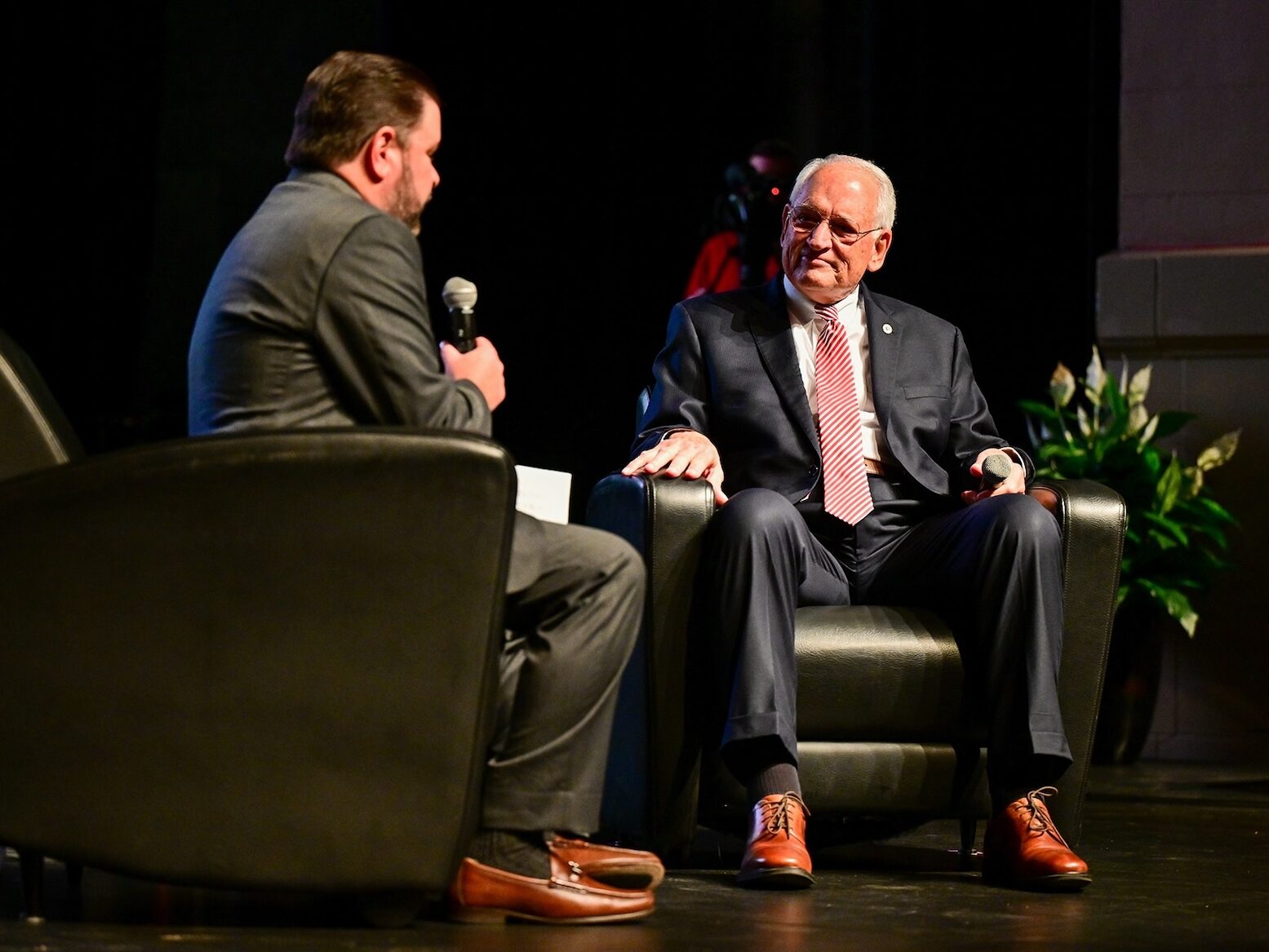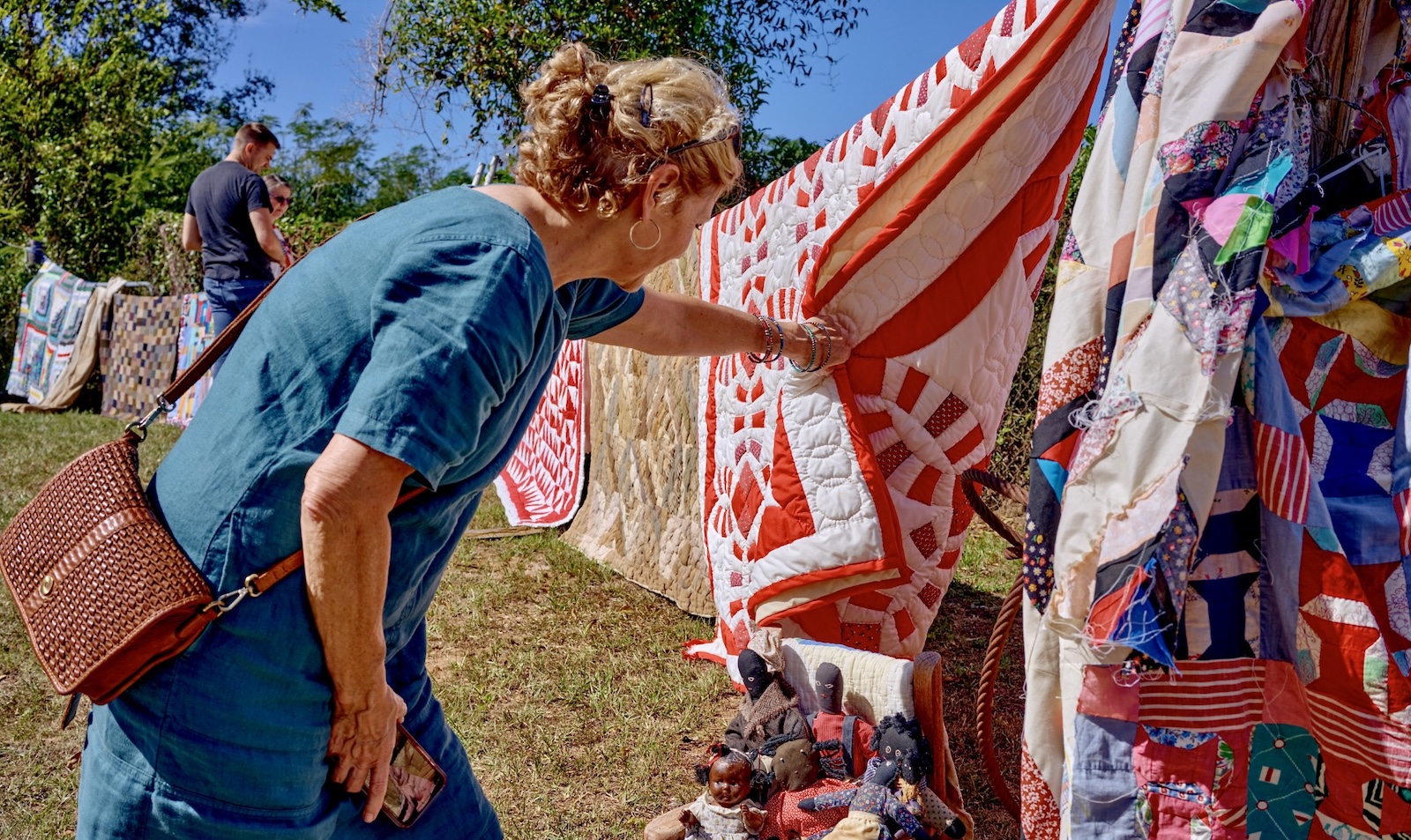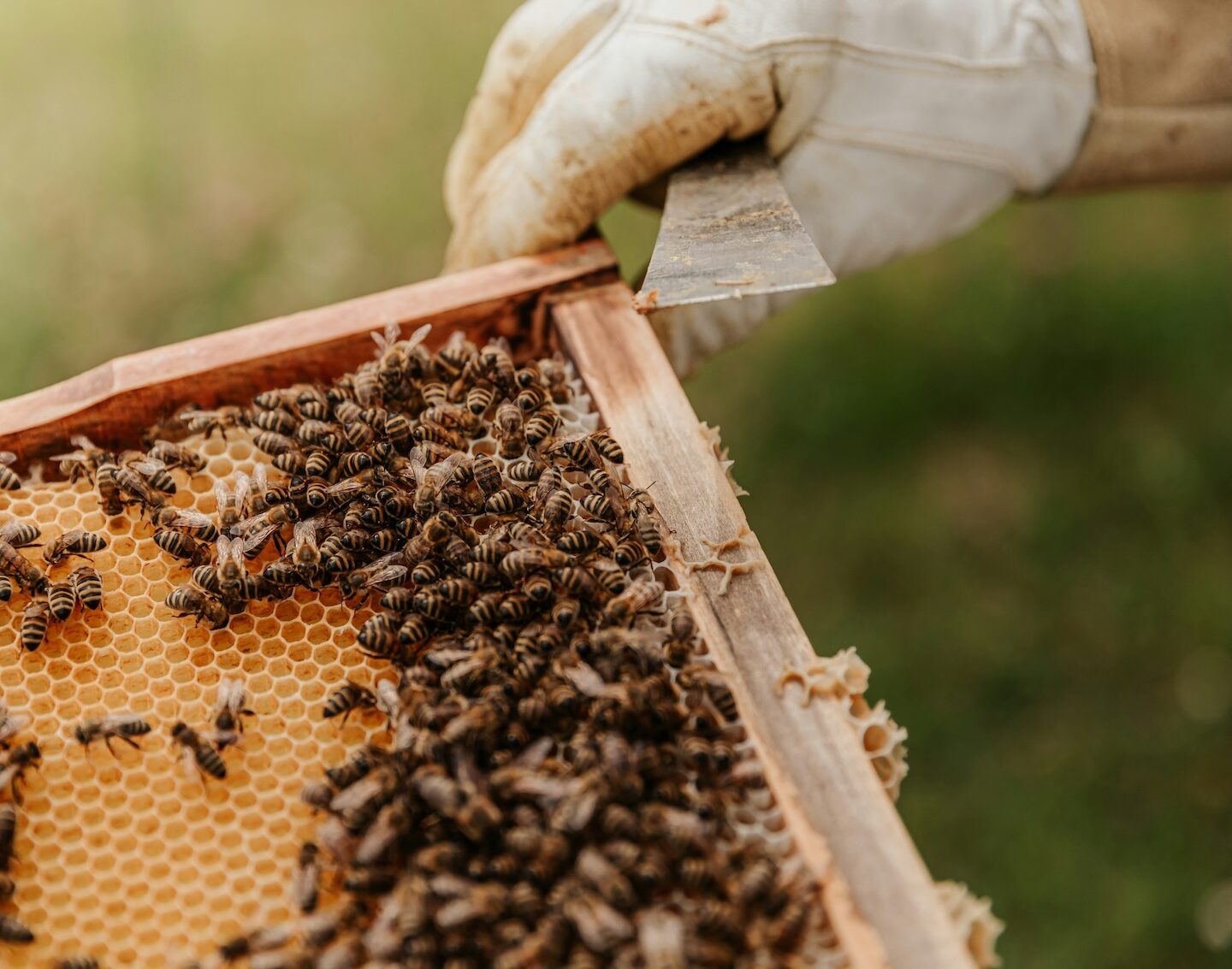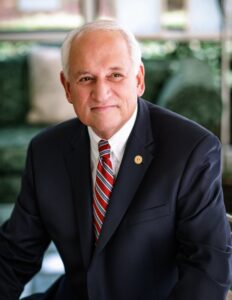
(Troy University/Contributed)
To speak with someone who lives a life of impact is a rare and priceless experience, and we had the honor of recently interviewing one such standout individual. A Purple Heart and Bronze Star veteran as well as the currently longest-serving chief executive of a public university in the U.S., Dr. Jack Hawkins, Jr., gave us insight into the experiences that have deepened his decisive and inspiring sense of direction. In his third decade at Troy University, he has taken the university to incredible heights and has fostered a fascinating relationship that has led to international acclaim.
“I was so inspired by the culture of Troy University, and I really do believe that is one of our most important responsibilities: the preservation of the culture,” shares Dr. Hawkins. “The culture of Troy is different from many institutions in higher education today. It’s a patriotic culture. We continue to do a lot of work with the military. It’s a culture based on values. Family values are important. Leadership is important. Civic responsibility is important.”
Upon his arrival at Troy, he identified key areas that signaled untapped potential. Through his time overseas in the United States Marine Corps, Dr. Hawkins knew firsthand the expansive experience of being exposed to different cultures. It was this experience that he wished for all Troy students. For Dr. Hawkins, offering these experiences was one branch of a much broader approach.
“Over the years, we’ve been intent on not just offering courses but building a great university, and you don’t do that overnight,” he says. “The culture of Troy changed dramatically when we began to look at what we were trying to do. We concluded that not only are we graduating students who we want to go into communities and to lead, but also, we want to graduate students who are globally competitive. At the time, we only had 40 international students on the campus. By the time COVID hit, we had 75 countries with over 425 from China alone.”
The most notable international interaction to take place during Dr. Hawkins’ time at Troy comes in the form of a deeply moving full-circle moment. “I went to Vietnam during the Vietnam War in 1968… I never had an interest or a desire to return to Vietnam. The war was a dividing point in our country’s history,” he explains. “When I came back from Vietnam, I left it behind me until 2002, when I had an invitation to go back. I didn’t know what to expect. My thoughts on Vietnam were dated. I think a lot of Vietnam veterans have really labored under that same concept or perspective. We saw Vietnam as a war.
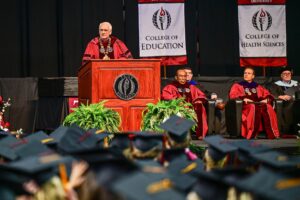
(Troy University/Contributed)
“But what I experienced in ’02 when I went back was really inspiring. I saw a country that was future-focused. I saw people that were receptive. They didn’t resent Americans. They wanted us there,” he recalls. “It was there in 2002 that we established programs in Hanoi, the capital of what we used to know as North Vietnam… and we began to educate young people. On February 28th, 2008, we awarded the first bachelor’s degree ever awarded by an American university.”
“In 2017, we were over for graduation, and I was invited [to dinner] while in Hanoi by a gentleman in Da Nang… I was familiar with Da Nang because that was the primary point of entry and exit for U.S. Marines during the war,” he shares. “I was invited by this gentleman who had established a private university dating back to November of 1994. It was called Duy Tan University.
“Over dinner, I learned something that was really captivating, and it sent me into a tailspin for a few minutes,” he recollects. “I learned that he had fought as a Viet Cong. During the Vietnam War, our primary enemy was the North Vietnamese army… the insurgents were known as the Viet Cong,” shares Dr. Hawkins. “I learned that, not only was he a Viet Cong soldier, but he was a national hero in the Viet Cong movement. So that was the beginning.” From that conversation, the two developed a lasting partnership between universities that would offer students invaluable opportunities. “We established a partnership, and it evolved. We have lots of students at Duy Tan University. Duy Tan has emerged as the number one private institution in Vietnam.”
As the president of Duy Tan, Dr. Lê Công Cơ, was approaching the later stages of life, his children commissioned a production company from Da Nang to capture his story of success. While doing so, the concept of the unique partnership between two individuals who fought on opposite sides of the war became an instrumental part of the documentary. Upon completion, the production company sent the documentary through the censorship process in Vietnam, and it emerged as acceptable for distribution.
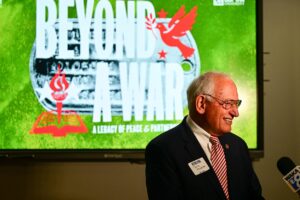
(Troy University/Contributed)
“The documentary was aired in the Central Highlands in Vietnam… and it was well received. It was so well-received that a month later, they aired it over national television in Vietnam. During the airing of that documentary, the former president of Vietnam called the daughter of Dr. Lê Công Cơ and told her that everyone in Vietnam needed to see that documentary because it was born of war, but it was really about reconciliation. So they released it after that airing, and he went on to say that everybody in America needs to see it.
“The title is Beyond a War, but I think the magic was captured in the subtitle: wars begin and end, but love lasts forever. Relationships last forever. You go back to that simple philosophy of understanding and appreciation, and then relationships are born and built,” Dr. Hawkins shares. “I’ve been asked several times since that documentary premiered about the message that I’d like for people to embrace as a result of the documentary. I think, in simple terms, I feel there’s more division today in our country, political division, than we’ve ever seen. It manifests itself in so many different and negative ways. This [documentary] tells the story of old enemies who were not in a figurative war, but a literal war, that had the capacity as human beings to come together in a sense of unity and do something for the common good.”
He continues, “We need unity in America, particularly political unity, more than we’ve ever needed it. I love America… I always think about how fortunate we are in this country to have the blessings of freedom and liberty and independence, and freedom of the press, and all that goes with being an American. I often think how too often we take that for granted.”
“We need unity to reach the potential that this great country holds,” concludes Dr. Hawkins.
